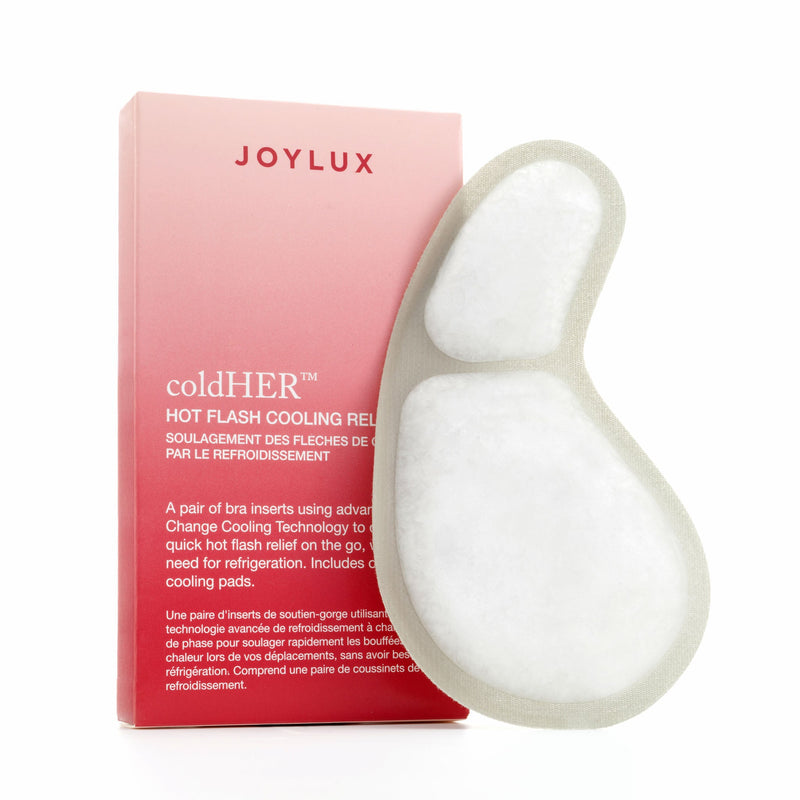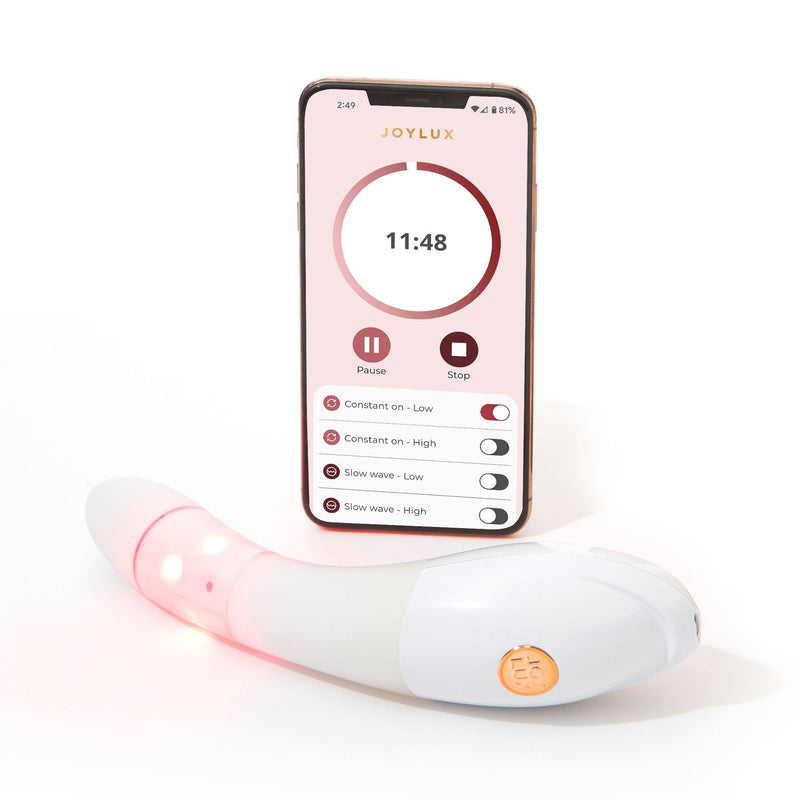
The Sleep-Menopause Connection
Menopause is a natural part of aging for women, but it can come with some unwelcome changes. One of these is an increased risk of sleep disturbances, which can have a significant impact on daily life. Fortunately, there are ways to address this issue and get a good night's rest. In this blog post, we'll discuss the connection between menopause and sleep disturbances, including the physiological changes that occur during menopause and how they affect sleep patterns. We'll also examine the symptoms of sleep disorders during menopause and their impact on daily life, and provide suggestions for ways to improve sleep during this time.
Changes During Menopause
Feeling exhausted all the time? It has been long known that levels of the hormone estrogen drop significantly during perimenopause and menopause. Estrogen helps regulate the body's circadian rhythm, which controls our wake and sleep cycle. This disruption of the body's normal sleep-wake cycle can lead to insomnia or other sleep disturbances.
Menopausal women are also more likely to experience night sweats, hot flashes, and other physical symptoms that can disrupt their sleep.
The good news is that there are several strategies you can use to improve sleep quality while you're going through menopause.
Physiological Changes
Menopause is a natural, but sometimes difficult life transition for women. Research from the National Sleep Foundation found that approximately 61% of menopausal women experience symptoms that affect their sleep patterns and quality of sleep.
When the ovaries no longer produce adequate amounts of estrogen and progesterone, the body can go through hormonal fluctuations. These hormone fluctuations can cause your body temperature to rise suddenly and make you sweat. Though normal, hot flashes and night sweats can lead to sleep disruptions, making it difficult for you to get a restful night's sleep.
Psychological Changes
Decreased estrogen levels also affect the production of serotonin, a hormone associated with mood, appetite, and sleep. Low serotonin levels can lead to depression, anxiety, and difficulty sleeping. Sleep disorders can also lead to issues such as depression, stress, and anxiety. Stress can cause hyperarousal, meaning the body is more easily stimulated and prone to waking up during the night. Depression and anxiety can lead to insomnia, restlessness, and fatigue during the day.
Common Symptoms of Sleep Disorders
Night sweats are another symptom of menopause that can cause sleep disturbances. Night sweats are episodes of excessive sweating that can occur at any point during the night, disrupting sleep and causing discomfort. During menopause, night sweats can be caused by fluctuations in hormone levels or changes in body temperature.
Fatigue is also a common symptom of sleep disturbances during menopause. Fatigue is a feeling of exhaustion that can make it difficult to perform daily tasks and even interfere with daily activities. Women may find themselves feeling drained and lacking energy throughout the day.
Sleep disturbances can also affect memory, concentration, and overall wellbeing. If you're experiencing any of these symptoms and it's affecting your daily life, it's important to speak to your doctor about possible treatments.
How to address sleep changes that come with menopause:
Menopause can be a challenging time for many women—but it doesn't have to mean an end to good sleep! There are some simple lifestyle changes you can make to help reduce stress, such as regular exercise, healthy eating habits, and mindfulness. It's also important to maintain a consistent sleep routine and to make sure you are getting enough rest each night.
Lifestyle Changes
- Exercise: Exercise is beneficial for improving sleep, including reducing sleep disturbances and increasing the amount of time spent in deep sleep. Try to incorporate moderate physical activity, like brisk walking or jogging, at least three times a week. This can help improve your overall well-being and sleep quality.
- Diet: Eating a healthy and balanced diet is important for managing symptoms of menopause, such as mood swings and hot flashes. Eating more whole grains, fruits, and vegetables, and avoiding caffeine and alcohol can help promote better sleep.
- Get Outside: Exposure to sunlight during the day can help regulate your circadian rhythm and improve sleep quality. Make an effort to get outside for at least 20 minutes a day, preferably in the morning or early afternoon.
By making small changes to your daily lifestyle, you can help manage the symptoms of menopause and get a better night's sleep.
Have a Bedtime Routine
Having a regular and consistent bedtime routine is important in ensuring that you get quality sleep. It may be tempting to sleep in, especially if you weren't able to get a good night's sleep, but getting up at the same time will help much more in the long run. This routine should be tailored to your individual needs, but there are some basic strategies that everyone can incorporate:
- Take a warm bath or shower: A hot bath or shower before bed is a great way to relax and unwind after a long day. Not only does it help reduce stress and tension, but it also helps your body cool down and prepare for a good night's sleep. Try adding some aromatherapy scents like lavender or chamomile to help create a calming environment.
- Try meditation or yoga: Meditation and yoga can be very helpful in reducing stress and preparing your body and mind for sleep. There are many apps and guided meditations available online that can help you learn the basics of mindfulness and relaxation. Stress is a common cause of insomnia and can be difficult to manage. Consider using relaxation techniques like yoga or deep breathing to help reduce stress levels and promote better sleep. Additionally, practicing yoga can help relax your muscles and improve blood circulation.
- Turn on a fan or use a white noise machine: Fans can help circulate air and reduce humidity in your bedroom, which can lead to better sleep. A white noise machine can also help mask outside noises that may keep you awake.
- Make sure you go to the bathroom: During menopause, you may find that you have sudden urges to urinate, or sometimes leak during exercise, sneezing, or laughing. Going to the bathroom right before bed can help prevent waking up in the middle of the night because you have to go.
Products that can help
- Melatonin: This natural hormone helps regulate your body's sleep-wake cycle. Taking melatonin 1-2 hours before bedtime may help with both falling asleep and staying asleep. If you are taking any medications or supplements, always check with your doctor first to make sure it is safe to take melatonin with them.
- vFit®: Sexual health plays a critical role in overall well-being, and it’s no secret that sex can improve sleep quality. Our revolutionary vFit device enhances vaginal health by rejuvenating tissues, improving natural lubrication, and restoring sensation, making intimacy more comfortable and enjoyable. Research shows that sex before bed encourages sleep by triggering the release of hormones like oxytocin, prolactin, and endorphins, which promote relaxation. Lower cortisol levels post-sex also reduce stress, while the physical activity helps tire the body, leading to deeper, more restful sleep.
- coldHER™ pads: Hot flashes and night sweats can be disruptive during menopause. For a great way to cool down quickly when you have hot flashes or night sweats, try coldHER™ pads. These perfectly cool bra inserts are designed to draw heat away from your chest so you can have a restful night's sleep.
- White noise machine: A white noise machine can help block out external noises that could be disrupting your sleep. Playing soft music or ocean sounds can help lull you into a deep sleep while masking other sounds that might keep you awake.
Sometimes, it's best to talk to your doctor.
It is important to be patient with yourself and your body as it adjusts to the changes that come with menopause. And remember, it's ok to ask for help. Your doctor or another healthcare professional can provide guidance and support during this time by recommending lifestyle changes, medications, and other treatments that might be effective for you.







